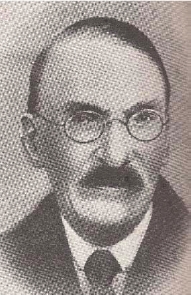John Gretton, 1st Baron Gretton, CBE, VD, TD, PC, JP, DL (1 September 1867 – 2 June 1947) was a British businessman and Conservative politician. Gretton won two gold medals in the 1900 Olympic Games.[1] He served as a Member of Parliament (MP) for 46 years, representing three constituencies in that period.
The Lord Gretton | |
|---|---|
 1900 Olympic Gold Medalist in sailing | |
| Member of Parliament for Derbyshire South | |
| In office 1895–1906 | |
| Preceded by | Harrington Evans Broad |
| Succeeded by | Herbert Raphael |
| Member of Parliament for Rutland | |
| In office 1907–1918 | |
| Preceded by | George Finch |
| Succeeded by | Constituency abolished |
| Member of Parliament for Burton | |
| In office 1918–1943 | |
| Preceded by | Robert Ratcliff |
| Succeeded by | John Frederic Gretton |
| Personal details | |
| Born | 1 September 1867 Newton Solney, Derbyshire, England |
| Died | 2 June 1947 (aged 79) Melton Mowbray, Leicestershire, England |
| Political party | Conservative |
| Spouse |
Maud Helen Eveleigh de Moleyns
(m. 1900) |
| Children | 3 |
| Relatives | John Gretton, 2nd Baron Gretton (son) Dayrolles Eveleigh-de-Moleyns (father-in-law) Brigadier Sir Henry Floyd (son-in-law) |
| Education | Harrow School |
| Sports career | |
| Sailing career | |
| Class(es) | .5 to 1 ton Open class |
Medal record | |
| Updated on 8 May 2015 | |
Life and career
editGretton was the eldest son of John Gretton of Stapleford Park and Marianne, daughter of Major John Molineux of Brook House, Compton in Surrey. John Gretton was educated at Harrow School. He was appointed chairman of Bass, Ratcliff and Gretton Ltd, the Burton-upon-Trent brewers in 1908 and served until 1945.
Gretton was a volunteer officer in the 2nd Volunteer Battalion, The (Prince of Wales's) North Staffordshire Regiment, and served as lieutenant-colonel and colonel when this became the 6th Battalion, North Staffordshire Regiment in the Territorial Force from 1907. He was appointed a captain in the Reserve on 24 February 1900.[2]
At the outbreak of the First World War, he was confirmed as temporary colonel in command of the 6th Battalion. In 1920, the War Office appointed Lord Gretton as lieutenant colonel Reserve Officer until demobilised in 1922.
In 1895, he was elected to the House of Commons as Member of Parliament (MP) for Derbyshire South, a seat he held until 1906. He then represented Rutland from the 1907 by-election to 1918 and Burton from 1918 to 1943, when he was appointed an Officer of the Order of St John (OStJ). Gretton was made a CBE in 1919 and admitted to the Privy Council in 1926. In 1944, he was raised to the peerage as Baron Gretton, of Stapleford in the County of Leicester. He was a Deputy Lieutenant of Derbyshire.[3]
Lord Gretton precipitated by a speech the Carlton Club revolt that brought down the Lloyd George Coalition Cabinet in the British Parliament in 1922. In 1929, he forced the British Government to honour its pledge of compensation to the Irish Loyalists.
In 1940, Lord Gretton precipitated by a speech the fall of the Neville Chamberlain Government and its replacement by a Coalition. Lord Gretton was a leading champion of the Second World War as a crusade of good versus evil, and a war against the German nation before the Winston Churchill era. He was identified by the press as "an old Tory".
Lord Gretton married on 19 April 1900 The Hon. Maud Helen Eveleigh de Moleyns, youngest daughter of The 4th Baron Ventry, an Anglo-Irish peer. The couple had three children:
- John Frederic
- Kathleen Fanny married on 9 April 1929 Brigadier Sir Henry Robert Kincaid Floyd, 5th Baronet Floyd
- Mary Catherine Hersey married on 19 July 1933 Capt Edward William Brook, 20th Hussars, only son of Lt-Col Charles Brook of Meltham Mills, Yorkshire and Kinmount House, Dumfries.
He died in June 1947 in Melton Mowbray, aged 79, and was succeeded in the barony by his son John Gretton, 2nd Baron Gretton.
A noted yachtsman, Gretton won two gold medals in the 1900 Olympic Games. He is unique in winning an Olympic gold medal whilst serving as a member of the House of Commons. (John Wodehouse, MP for Mid Norfolk 1906–10, won a silver medal at the 1908 Olympic Games.)[4]
-
The grave of John Gretton, 1st Baron Gretton, in the graveyard of St Mary Magdalene's Church, Stapleford
-
The memorial to John Gretton, 1st Baron Gretton, in St Mary Magdalene's Church, Stapleford
Arms
edit
|
References
edit- ^ "John Gretton Bio, Stats, and Results". Olympic Sports. Archived from the original on 21 February 2014. Retrieved 8 February 2014.
- ^ "No. 27168". The London Gazette. 23 February 1900. p. 1260.
- ^ Lundy, Darryl. "John Gretton". The Peerage. Retrieved 14 September 2009.[unreliable source]
- ^ "John Gretton". Olympedia. Retrieved 29 December 2020.
- ^ Burke's Peerage. 1999.
- Kidd, Charles; Williamson, David (1990). Charles Kidd & Charles Williamson (ed.). Debrett's Peerage and Baronetage. New York: St Martin's Press.
- Mosley, Charles (1999). Burke's Peerage and Baronetage (106th ed.). Cassells.
External links
edit- John Gretton, 1st Baron Gretton at Olympedia
- John Gretton, 1st Baron Gretton at Team GB
- leighrayment.com[usurped]
- leighrayment.com[usurped]
- Exposition Universelle Internationale de 1900, Concours D'Exercices Physiques et de Sports (PDF) (in French). Imprimerie Nationale. 1901. Archived from the original (PDF) on 28 May 2008. Retrieved 8 February 2014.
- Hansard 1803–2005: contributions in Parliament by John Gretton